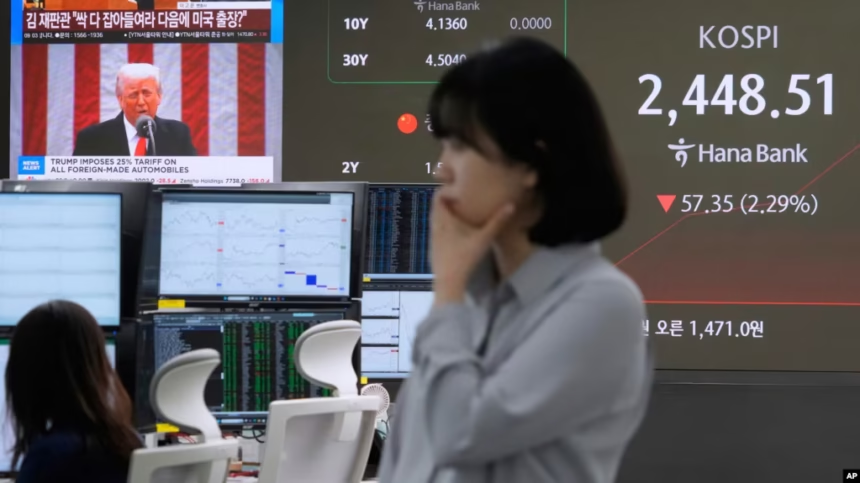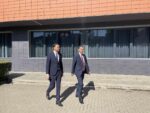South Korean President Lee Jae Myung stated that it remains unclear whether Seoul and Washington will successfully conclude negotiations on customs tariffs by the deadline set by President Donald Trump for next week. Lee emphasized on Thursday that both countries are working to clarify their positions and identify areas of agreement.
Speaking at his first press conference since taking office last month, Lee also reiterated his intention to improve strained relations with North Korea, although he acknowledged that the mutual distrust between the two Koreas is too deep to be overcome soon.
Trump’s tariff increases and other “America First” policies present significant challenges for Lee’s month-old government, as do North Korea’s expanding nuclear program and domestic economic difficulties. Lee, a liberal politician, came to power after winning snap presidential elections, triggered by the impeachment of conservative President Yoon Suk Yeol following his ill-fated declaration of a state of emergency in December.
“Not Easy” Negotiations and Looming Deadlines
Lee described the tariff negotiations with the US as “clearly not easy” and stressed that both countries must achieve mutually beneficial results.
“It’s difficult to say for sure if we will be able to reach a conclusion by July 8. We are doing our best,” Lee said. “What we need is a truly reciprocal result that benefits both sides and works for everyone, but so far, both sides are still trying to determine exactly what they want.”
Trump’s 90-day pause on global reciprocal tariffs expires on July 9, which could expose South Korean products to a 25% tax. Washington is also seeking to raise tariffs on specific products like automobiles and semiconductors, which are key exports for South Korea’s trade-dependent economy. There are growing concerns in Seoul that Trump might demand a broader agreement that would force South Korea to pay significantly more for the 28,000 US troops stationed on the peninsula to deter threats from North Korea.
Lee has consistently called for patience regarding tariffs, arguing that a rushed agreement would not serve the national interest.
Balancing Act in Foreign Policy
Lee had previously been criticized for leaning towards North Korea and China, seemingly distancing from the US and Japan. However, since the elections, Lee has consistently promised pragmatic diplomacy, stating he will strengthen the alliance with the US while simultaneously trying to improve relations with North Korea, China, and Russia. Some critics argue that it is exceedingly difficult to satisfy all parties.
Lee’s government has taken visible steps to build trust with North Korea, halting anti-Pyongyang propaganda broadcasts along the border and taking measures to prevent activists from sending propaganda leaflets across the border via balloons. North Korea has not publicly reacted to these conciliatory gestures from Trump and Lee, but officials have noted that North Korean propaganda broadcasts are no longer heard in South Korean border towns.
North Korea has refused talks with the US and South Korea since nuclear discussions between Trump and Kim failed in 2019. Currently, North Korea is strengthening relations with Russia, offering troops and weapons to support its war against Ukraine in exchange for economic and military assistance.







